If you have ever wondered why your air conditioning vents are sweating, you are not alone. This common issue can be frustrating, especially when you are trying to cool your home or office during the hot summer months. The good news is that there are several reasons why your AC vents might be sweating, and in this blog post, we aim to explore these reasons in depth.
One possible reason for your AC vents sweating is that there is too much humidity in your home. When the air inside your home is too humid, it can cause the cold air from your AC to condense on the vents, leading to sweating. Another possible cause is a clogged air filter or blocked air ducts, which can restrict airflow and cause cold air to condense on the vents.
In this blog post, we will delve into the various reasons why your AC vents might be sweating, and offer some practical solutions to help you address the issue. So, if you’re tired of dealing with AC vents sweat, we suggest you pursue the subsequent article to get your problem solved.
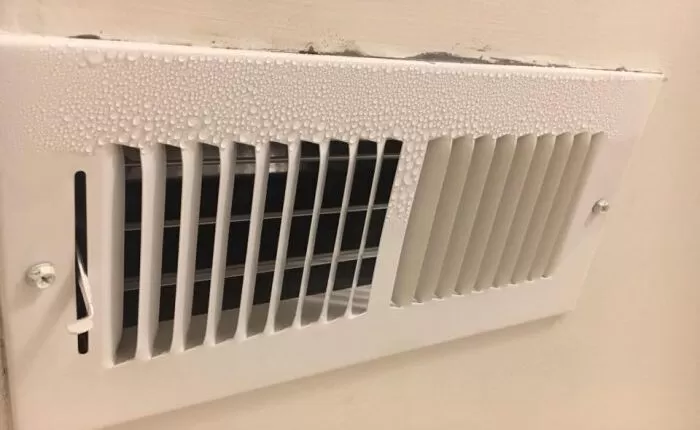
Why Do Air Conditioner Vents Sweat?
The reason air conditioner vents sweat is because of the condensation that forms on them. When warm air hits the cold surface of the vent, water droplets form and eventually drip down. This is perfectly normal and nothing to be concerned about.
There are a few things you can do to help prevent your vents from sweating too much. First, make sure that they’re clean so that the water has nowhere to build up. Second, keep them slightly open so that air can circulate properly.
And finally, if possible, try to direct a fan towards the vents to help keep the air moving. If your air conditioner vents are sweating excessively, it could be an indication of a bigger problem. If this is the case, you should contact a professional for assistance.
In most cases, though, a bit of sweating is nothing to worry about!
Why is my ductwork sweating or dripping water?
Ductwork sweating or dripping water is a common issue in many homes or buildings. This occurs when the temperature of the air inside the ductwork is lower than the temperature of the surrounding air.
As a result, moisture in the air condenses on the surface of the ductwork and forms droplets that eventually drip. This problem can be exacerbated by inadequate insulation or improper air circulation.
To prevent ductwork sweating, it is important to ensure that the ductwork is properly insulated and that air circulation is sufficient. Additionally, installing a dehumidifier can help reduce moisture levels in the air and prevent condensation from forming.
What causes ductwork to sweat?
Ductwork sweating is a common issue that can lead to various problems, such as mold growth and reduced energy efficiency. There are several factors that can cause ductwork to sweat, including high humidity levels, poor insulation, and inadequate ventilation.
When the temperature of the air inside the ductwork is lower than the dew point temperature of the surrounding air, condensation can form on the surface of the ducts, leading to sweating. Additionally, if the ducts are not properly sealed, warm air from the surrounding areas can enter the ducts and create a temperature differential, which can also cause sweating.
Proper maintenance and insulation of ductwork can prevent sweating and improve indoor air quality.
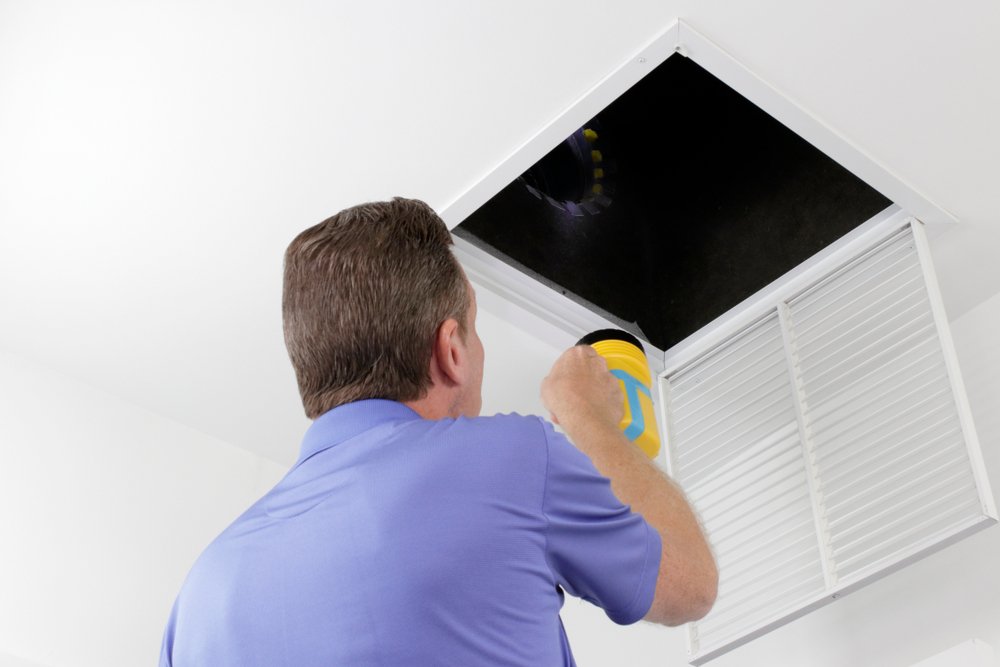
How to stop duct from sweating?
If you’ve ever noticed water droplets or beads of sweat on your air ducts, you may be wondering why this is happening and how you can stop it. Duct sweating, also known as condensation, can occur when the air around your ducts is humid and cold. This can happen in any season but is more common in the summer and fall.
There are a few things you can do to stop your ducts from sweating. First, make sure that your ducts are properly insulated. This will help to keep the air around them cold and will reduce the amount of condensation that can occur.
Second, consider using a dehumidifier in your home. This will help to remove any excess moisture from the air, which will in turn reduce the amount of sweating your ducts will do. Finally, make sure to keep your vents open and unobstructed.
This will allow the air to circulate properly and will help to keep your ducts dry. If you follow these tips, you should be able to reduce the amount of duct sweating that occurs in your home.
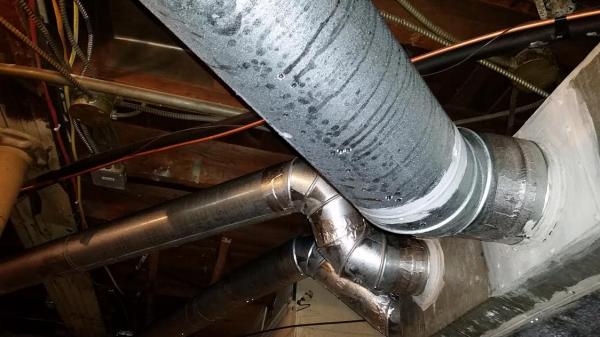
Is It Normal for Ac Vents to Sweat?
Yes, it is normal for AC vents to sweat. This is because the cool air that the AC produces causes the water in the air to condense on the vents. When this happens, it can drip down onto the floor or furniture below, which can create a mess.
Ceiling vents sweating
If you’ve ever noticed water droplets on your ceiling, you may have a problem with ceiling vents sweating. This can happen for a number of reasons, but the most common is when the temperature outside is much colder than the temperature inside your home. As the warm air from your furnace or heat pump rises, it can cause condensation on the cold metal surface of the vent.
There are a few things you can do to help reduce or eliminate ceiling vent sweating. First, make sure that your furnace or heat pump is properly sized for your home. If it’s too big, it will cycle on and off too frequently, which can cause the problem.
Second, you can insulate the ductwork leading to the ceiling vents. This will help keep the air temperature more consistent, which will reduce the chances of condensation. Finally, you can install a humidifier in your home.
This will help to keep the air from getting too dry, which can also lead to condensation on the vents. If you have ceiling vents that are sweating, don’t despair! There are ways to fix the problem and prevent it from happening in the future.
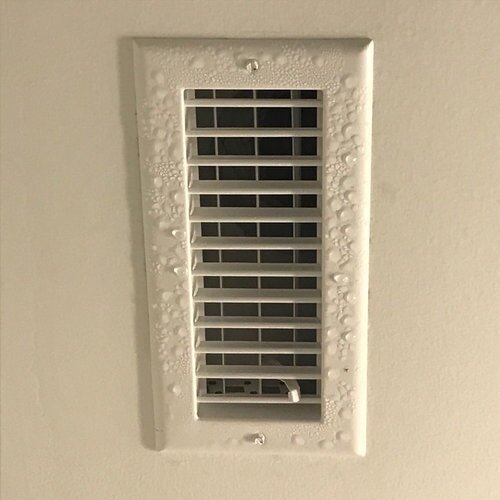
How to stop condensation from air conditioners?
If you’ve ever noticed water dripping from your air conditioner, it’s likely due to condensation. When humid air hits the cold coils of your AC unit, it condenses and forms water droplets. While a little condensation is normal, too much can be a sign of a problem.
If you’re noticing a lot of water around your air conditioner, there are a few things you can do to stop it. First, make sure your AC unit is the right size for your home. If it’s too big, it will run less efficiently and produce more condensation.
Second, clean or replace your air filter regularly. A dirty filter can cause your AC unit to work harder and produce more condensation.
Finally, if you have a window air conditioner, make sure the drain pan is empty and the unit is level. If the pan is full or the unit is tilted, water can drip out and cause condensation.
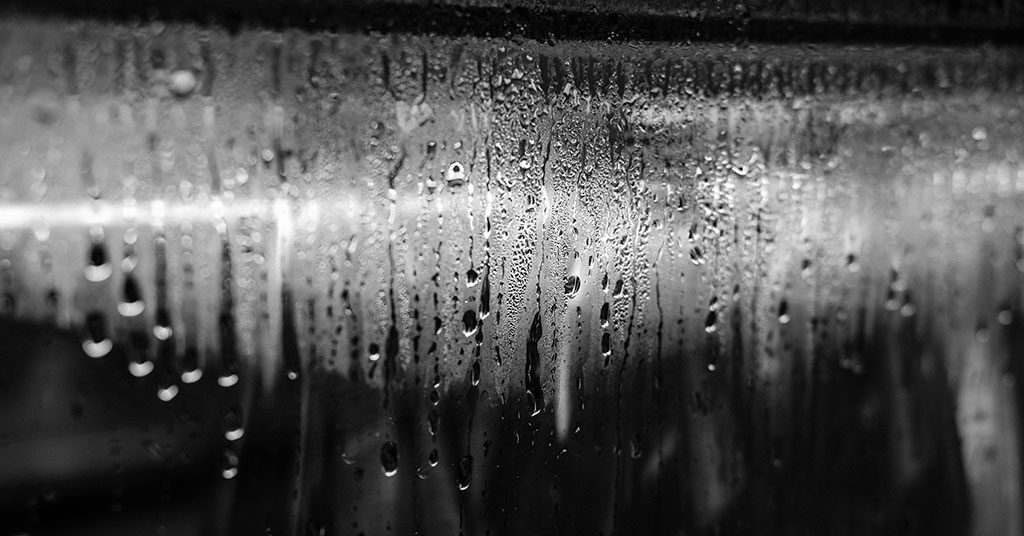
Why is My Air Vent Dripping Water?
If you notice water dripping from your air vent, there could be a few different reasons why. One possibility is that the condensation from your air conditioner is not draining properly and is leaking out through the vents. Another possibility is that there could be a leak in the ductwork itself.
If you think there may be a problem with your ductwork, it’s best to contact a professional to take a look. In some cases, dripping water from an air vent could also be caused by humidity in the room. If this is the case, you can try running a dehumidifier in the room to see if that helps.
Condensation on ac vent in bathroom
If you’ve noticed condensation on your AC vents in the bathroom, you’re not alone. This is a common problem in homes with AC units, and there are a few reasons why it happens. First, it’s important to understand that condensation is created when warm, moist air comes into contact with a cold surface.
In the case of your AC vents, the cold surface is the metal of the vent. When the warm, moist air hits the cold metal, it condenses and forms water droplets.
There are a few things that can cause this condensation to happen.
One is if the humidity in your home is too high. This can be due to a number of things, such as cooking, showering, or even just having a lot of plants in your home. If the humidity in your home is too high, it can cause condensation to form more quickly.
Another reason for condensation on your AC vents can be if the AC unit itself is not properly sized for your home. If the unit is too small, it will have to work harder to cool your home, and this can cause the unit to get cold enough that condensation will form.
Finally, another reason for condensation on your AC vents can be if the insulation around the unit is not adequate. If the unit is not properly insulated, it can allow cold air to seep in and cause condensation to form.
Air Conditioner Vents Sweating
If your air conditioner vents are sweating, it could be due to a few different things. The most common cause is actually due to high humidity in the air. When the air is full of moisture, it can condense on cold surfaces like your AC vents.
This can happen even if your AC unit is turned off. Another possible reason for sweating vents is if there is something blocking the airflow. This could be something as simple as dust or dirt build-up on the vents.
If this is the case, you’ll want to clean the vents to ensure proper airflow. Finally, another less common cause of sweating AC vents could be a refrigerant leak. If you suspect this may be the case, it’s best to contact a professional for help.
Refrigerant leaks can be dangerous and should not be handled by amateurs. If your air conditioner vents are sweating, don’t panic! In most cases, it’s nothing to worry about and can be easily fixed.
Car ac vents sweating
If your car’s AC vents are sweating, it’s likely because the temperature inside the car is too high. This can be caused by a number of factors, including:
- The car being parked in direct sunlight
- Car may be parked in a hot, humid environment
- The car’s cooling system is not being properly serviced
If your car’s AC vents are sweating, it’s important to take action to correct the problem. Otherwise, the moisture can lead to mold and mildew growth, which can cause a variety of health problems.
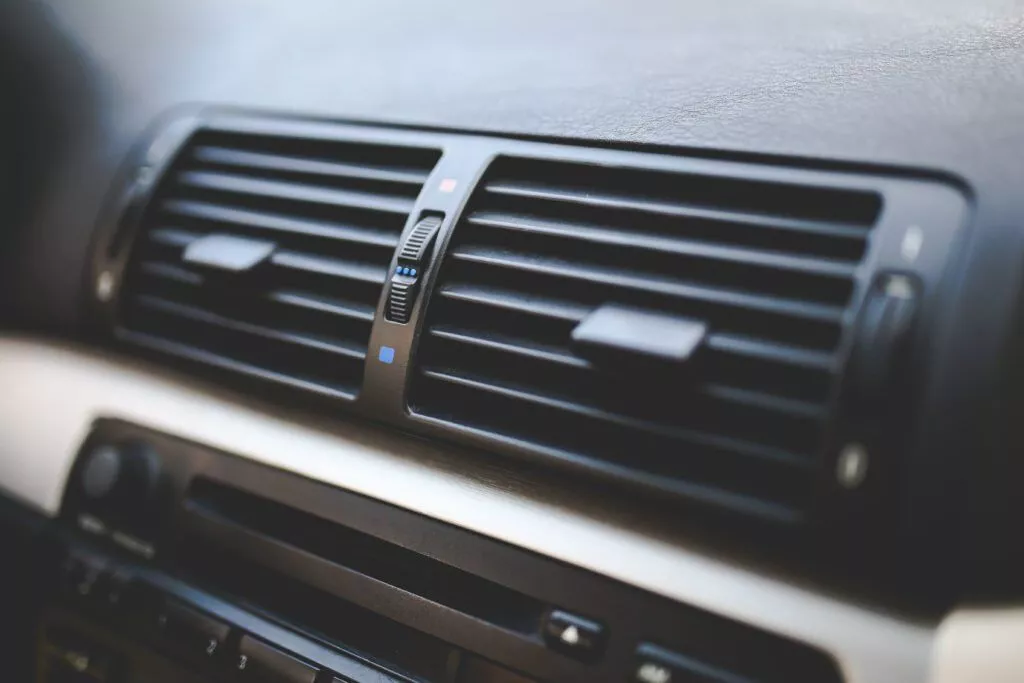
There are a few things you can do to fix the problem:
- Park in the shade or in a cool, dry place to keep the car’s interior temperature down.
- Make sure the car’s cooling system is properly serviced. This includes regularly changing the coolant and checking the system for leaks.
If you take these steps, your car’s AC vents should stop sweating.
Ac duct sweating in crawl space
If you have a home with a crawl space, you may have noticed that your air ducts sweat during the summer months. This is due to the humid air in the crawl space condensing on the cold air ducts. While this is a normal occurrence, it can cause problems if the condensation is not properly removed.
If the condensation is not removed, it can lead to mold and mildew growth on the air ducts. This can cause health problems for anyone in the home that suffers from allergies or respiratory problems.
In severe cases, mold and mildew can cause the air ducts to rot, which can lead to expensive repairs.
The best way to prevent condensation on air ducts is to install a crawl space vapor barrier. This will prevent the humid air from coming into contact with the air ducts. You can also install a dehumidifier in the crawl space to help keep the air dry.
If you have noticed that your air ducts are sweating, take action to prevent problems. Install a vapor barrier and dehumidifier to keep your air ducts dry and your home healthy.
Excessive condensation from air conditioning
If your air conditioner is producing excess condensation, there are a few things you can do to mitigate the problem.
First, check your air conditioner’s filter and clean or replace it if necessary. A dirty filter can restrict airflow and cause your air conditioner to work harder, leading to excess condensation.
You should also make sure that your air conditioner’s coils are clean. Dirty coils can also restrict airflow and cause your air conditioner to work harder. If you’re still having problems with excess condensation, you may need to adjust the humidity settings on your air conditioner.
Increasing the humidity setting will cause the air conditioner to run less often, which will reduce the amount of condensation it produces.
Water dripping from ductwork in basement
If you have water dripping from your ductwork in your basement, it’s important to take action right away to avoid further damage. Here are a few things you can do to fix the problem:
1. Check for leaks in the ductwork. If you see any leaks, you’ll need to repair them right away.
2. Make sure the ductwork is properly insulated. This will help to prevent water from condensing on the inside of the ductwork and dripping down.
3. Inspect the area around the ductwork for any cracks or holes. These need to be repaired in order to prevent water from coming in from the outside.
4. If you have a sump pump, make sure it is working properly. This can help to remove any water that has already accumulated in the ductwork.
5. Check the gutters and downspouts around your home. Make sure they are clear of debris and are draining properly.
Taking these steps will help to fix the problem of water dripping from your ductwork. If you have any further questions, please feel free to contact us.

How do you stop AC vents from sweating?
If your AC vents are sweating, it’s likely because the temperature in your home is too high. The first step to stopping your AC vents from sweating is to lower the temperature in your home. If your AC unit is set to cool your home to 72 degrees, try setting it to 74 or 75 degrees.
This will help to reduce the amount of condensation that forms on your AC vents.
In addition to setting your AC unit to a higher temperature, you can also try the following tips to stop your AC vents from sweating:
- Make sure your home is properly insulated. This will help to keep the cool air in and the warm air out.
- Use a dehumidifier in your home. This will help to remove the excess moisture from the air, which will reduce the amount of condensation that forms on your AC vents.
- Use fans in your home. This will help to circulate the air and keep the temperature even throughout your home.
By following these tips, you can help to stop your AC vents from sweating and keep your home comfortable all summer long.
What does condensation on AC vent mean?
If you notice condensation on your AC vents, it could be a sign that your AC unit is not working properly. When your AC unit is running, the evaporator coils inside the unit absorb heat from the air in your home. This process causes the coils to become very cold, and the surrounding air to become humid.
If the coils are not cold enough, the air will not be cooled properly and will cause condensation on the vents. There are a few things you can do to fix this problem:
– Make sure the coils are clean. If they are dirty, they will not be able to absorb the heat properly.
– Check the air filter. A dirty air filter will also impede the performance of the coils.
– Adjust the thermostat. If the thermostat is set too low, the coils will not get cold enough.
What Can I Do About Sweaty AC Ducts? Why Air Conditioning Ducts Sweat or Leak Water
Conclusion
The air conditioner in your home works to remove humidity from the air. This is why you may notice that your air vents sweat.
The reason for this is that the air conditioner is constantly pulling moisture from the air, which can cause the vents to sweat.
There are a few things that you can do to help prevent this from happening. One thing that you can do is to make sure that the air conditioner is properly sized for your home. Another thing that you can do is to make sure that the air conditioner is set to the correct humidity level.